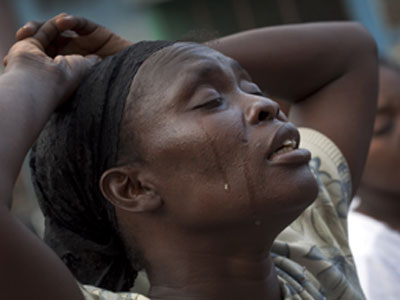Nigerians, irrespective of tribal affiliation, religious persuasion and political leaning, are reeling in consternation as to how the nation found itself in the present situation that is driving everyone to the brink of helplessness and despondency as cost of living gets so high and life itself so cheap as to question the ideals of democracy which promises the good life for the majority.
This is not to suggest that the nation had, at any time, been an Eldorado. The persuasive argument by Nigerians who are made to walk, literally, through the biblical ‘valley of the shadow of death’ is that the expectations are becoming forlorn and the disappointments inflicted on them by the ruling class, perhaps, irredeemable.
The recent reactions in Minna, Niger state, Kano and elsewhere around the country are evidence that, soon, Nigerians will become angry enough to demand social and economic justice. In those areas where the people had the courage to speak up, the cry is against galloping cost of living that has put almost every economic and social service out of reach of the proverbial common man just as incomes stagnate both in quantity and value.
In Kano, from the placards on display, the people were not asking for the moon. They wanted the basics like food, school fees for their children and ability to go to bed and sleep with their two eyes closed. They demanded for the reopening of the borders so that food and other items could be brought in to augment what is produced locally.
We recall that the borders were sealed so as to stem the tide of importation of goods, especially, agricultural produce, in response to the demand of local farmers who claimed that importation was a disincentive to a successful practice. With the money claimed to have been invested in agriculture at the time, the decision seemed plausible. But from the reality on ground presently, was it?
The harsh effect of the border closure is further receiving sharp teeth with the government’s ill-advised policy to increase tariff on some imported agricultural products. The inordinate drive to enhance internally generated revenue (IGR), even if it means squeezing the already asphyxiating Nigerians to death, is one of those actions of government that urges one to interrogate the rationality of policy makers.
However, in our view, like the man with his back to the wall, these inconsiderate policies are beginning to generate the kind of reaction that the nation witnessed in parts of the country. Could it be that Nigerians are beginning to demand that enough ought to be enough? It is pertinent, we dare to point out, that a deprived citizen can be unpredictable and has no time to analyse political behaviour. The world is replete with proofs.
The negative impact of the border closure and the hike in tariff on some imported agricultural products are further worsened by the security situation in the country where farmers are reluctant to go to their farms either to cultivate or harvest crops that are due. The dollarization of the economy adds a perplexing mix that defies commonsense
In all these, the response of the government in power is not salutary enough as it lacks empathy. Nigerians are being told that the cost of food items is among the cheapest in Africa. That, of course, is a white lie by someone from the pit of hell. We demand to know who carried out the survey and what were the parameters?
Worse than this disinformation, in our opinion, is the politicization of misery in the country. Instead of providing acceptable and humane answers to questions of food insecurity and the exorbitant cost of other essential services, Nigerians are being told that they are stupid enough to allow themselves to be manipulated by opposition groups in the political space.
It is sad, in our opinion, that the political class in Nigeria lack the sagacity to differentiate between what is of interest to the people, how best to actualize them and what is harmful to them even if it is politically expedient to the ruling class. There is a numbing proclivity on the part of politicians to always assess what can be rightly described as social upheavals only in terms that are inherently injurious not only to the nation but ultimately, also, to their own political interest. Blaming the people’s reaction to the hardship in the country on opposition groups, raises questions about the suitability of those in government to occupy those offices. If they are encircled by the sweets of office, should that be sufficient reason for them to deny that harmattan wind is cold?
But the stubborn truth, in our estimation, is that Nigerians are hungry and angry. Some are just confused as to how to react to the near insensitivity to their plight by officialdom. And that is where the danger lies. Confusion, hunger and anger are a dangerous combination, bad enough for Shakespeare to warn especially government, at all levels, to beware of the anger of a patient citizenry.
There is a pervasive tendency to take Nigerians for granted by those they had the misfortune of putting in office. As they wallow in want imposed by corruption in high places, they are told that hope and patience are what they need to survive. That would have been tolerable if the those in power themselves are abiding by the same admonition.
In our considered opinion, we are compelled to urge the government to care for their own survival and listen to the cry of hunger by the people.





